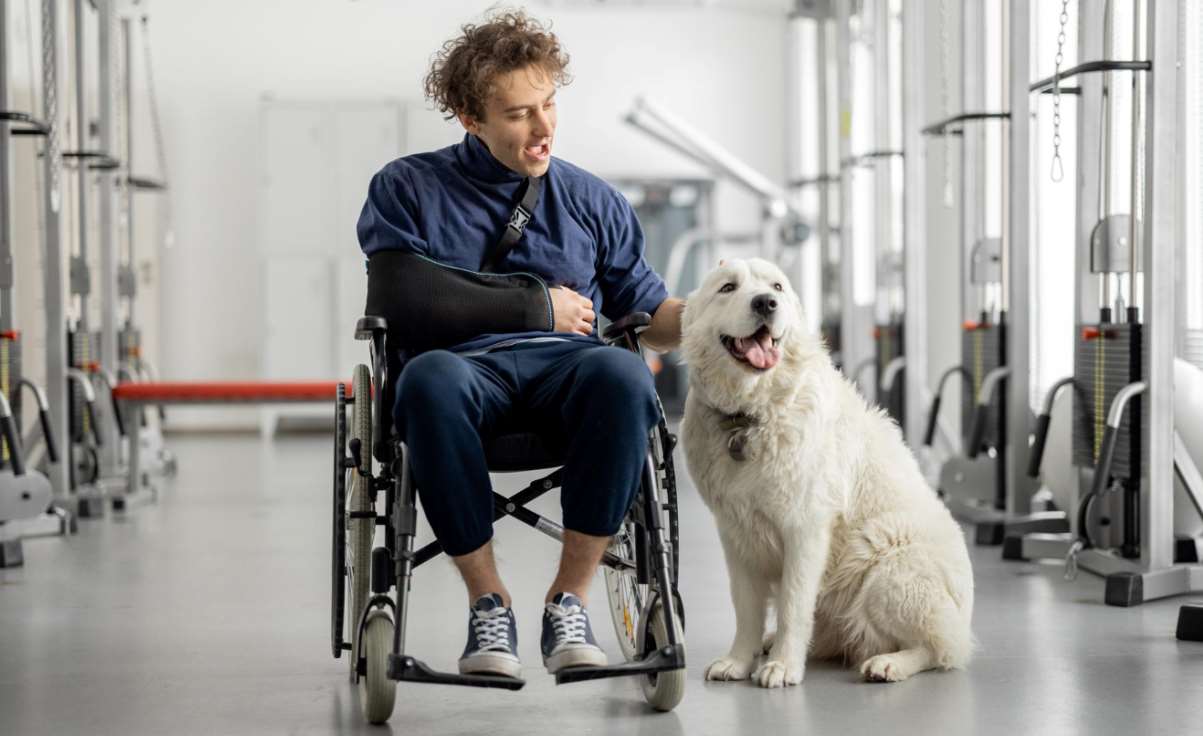Join Our Newsletter
Subscribe with your email to receive the latest news, updates, and exclusive offers.

Every individual who has a pet understands that having a dog has numerous advantages, ranging from providing exercise to faithful companionship. Animals have long been thought to offer considerable mental health advantages, according to research. According to a study, having a pet improves mental health by creating emotional connectivity and assisting people in crises. However, the presence of a dog is crucial for some persons with mental or emotional disorders to function regularly. The pet offers emotional support and comfort, allowing them to cope with obstacles. Emotional support animals are the name for these pets (ESAs).
An emotional support animal is a pet that helps a person with a disability. The animal aims to provide companionship and support while assisting with at least one part of the impairment. Most dogs are considered emotional support animals, but cats are also trendy. Miniature horses, for example, can be used as ESAs.
Although all dogs have an emotional connection with their owners, emotional support dog, also known as an emotional support animal (ESA), must be prescribed to a person with a disabling mental condition by a qualified mental health professional. The animal’s presence must be determined by a therapist, psychologist, or psychiatrist to be necessary for the patient’s mental health. Having a pet, for example, can reduce anxiety and provide a sense of purpose in life.

ESAs can alleviate anxiety, despair, and specific phobias by providing companionship. However, these are not service dogs, and ESA owners are not entitled to the same benefits as service dog owners.ESAs are not permitted anyplace. A service dog, such as a guide dog or psychiatric service dog, is allowed. ESAs cannot, for example, accompany their owners into restaurants or retail centers. Dogs that are individually taught to accomplish labor or execute duties for people with disabilities,” according to the Americans with Disabilities Act (ADA). Animals that merely provide emotional comfort are not considered service animals, according to the statute.
The most crucial distinction between a service dog and an emotional support dog is whether the animal has been trained to do a specific task or job directly related to the person’s handicap. Service dogs, for example, can be trained to alert a deaf or hard of hearing person to an alarm, guide a visually impaired person around an obstacle, or provide pressure to a person who has PTSD and is having a panic attack.
There are service canines called psychiatric service dogs that require substantial training to assist persons who have disabilities caused by mental illness. These dogs can detect the onset of psychiatric episodes and help in reducing their severity. The distinction between a psychiatric service dog and an ESA is, once again, in the tasks done by the dog and the training obtained to accomplish these activities.

Psychiatric service dogs (also known as service dogs by the ADA) have been trained to perform specific tasks that assist the handler in dealing with mental illness. The dog might, for example, remind a person to take prescribed prescriptions, keep a disoriented person in a dissociative episode from walking into a potentially dangerous scenario like traffic, or undertake space searches for a person with post-traumatic stress disorder. If the dog’s presence is the only thing that helps the person cope, the dog isn’t a psychiatric support dog. You can learn more and apply if you are looking out for a support system or someone as a constant companion.

Service dogs are necessary for Americans. The one with Disabilities Act (ADA) to have full public access rights, which means they can go to areas where other animals are not permitted. They’re welcome in restaurants, stores, libraries, and other public places. Even if additional pets are not allowed, they must be allowed in dwellings. On flights and other public transportation, service dogs are also allowed. One caveat: there are different laws for service dogs depending on the airline. The dog must sit on the traveler’s lap or at their feet most of the time. Dogs are not allowed to sit on the emergency exit row or block the aisle. The pet fees levied by airlines do not apply to service dogs. (1)
Emotional support animals (ESAs) may benefit those suffering from depression or anxiety. If you believe a support animal could help you manage your symptoms, speak with your doctor or therapist about the benefits and hazards. Having a pet necessitates a significant time and effort commitment, so make sure you are ready and capable of caring for the animal. Discussing what you intend to achieve from having an emotional support animal and which type of animal could be best for your requirements may be beneficial. (2)
